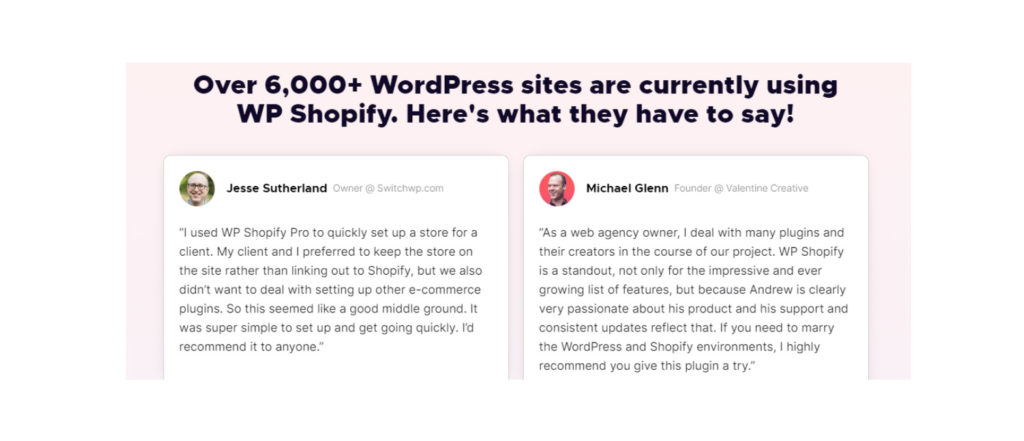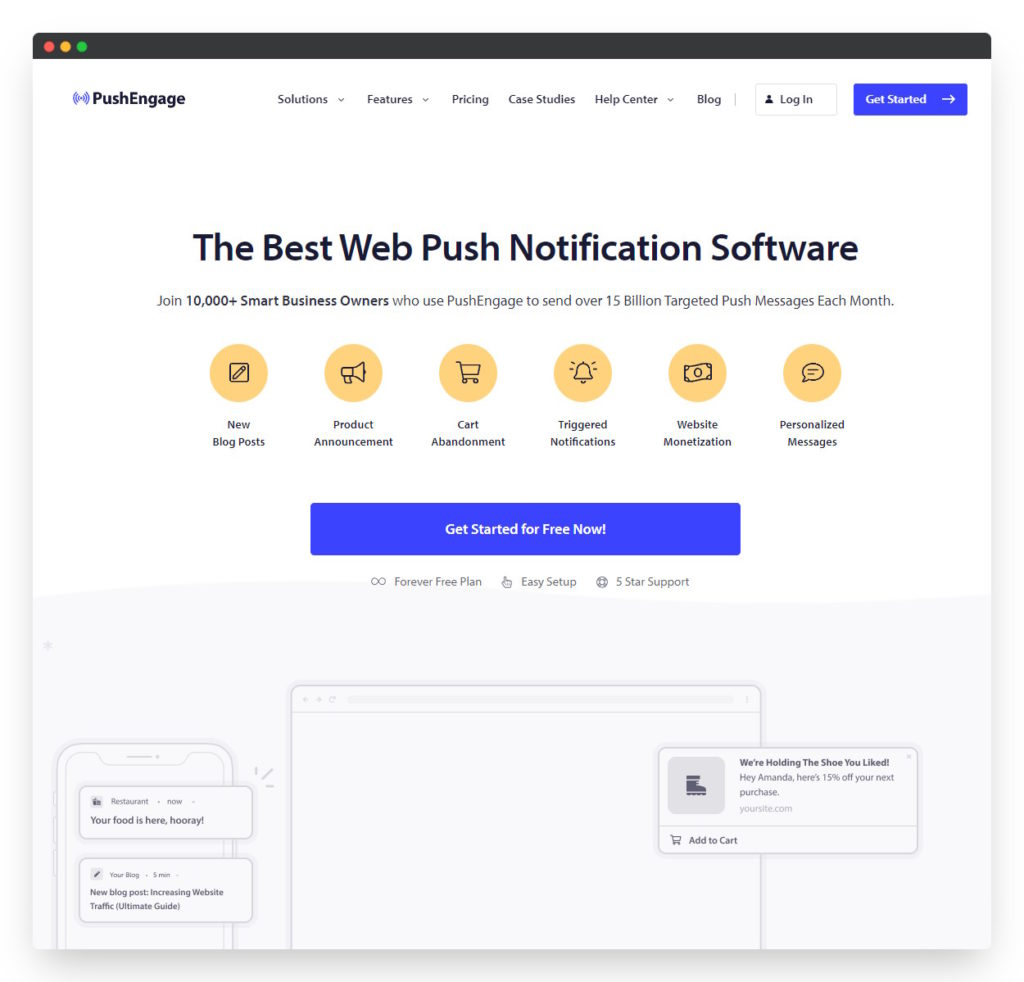Best WordPress eCommerce Plugins

If you’re here, you either have an online store already or want one, and you’re doing a bit of research. And you’re probably at that stage where you’ve discarded the ready-made platform option (such as Shopify and Magento) due to its expensiveness and a slight lack of freedom.
The quite appealing alternative is WordPress and a bundle of helpful plugins. Those plugins are what we’re going to discuss in this article.
WordPress eCommerce
eCommerce store development is much more accessible now than it was even 5 years ago, mainly due to an abundance of software that allows starting your business in less than a couple of days.
Now, WordPress eCommerce development supplies nearly 41.6% of all global websites and has a market share of 64.9%. No wonder WP plugins are in such high demand - they turn a seemingly minimalistic blog into a proper online store.
Before the de-facto WordPress installation, remember - hosting is key for a smooth-running e-store. It has to provide excellent uptime, have an SSL certificate, and reliable security, even though WP development already ensures a pretty solid and secure core. And don’t forget to schedule backups and routine safety checks.
WordPress Plugins
So how do you choose and what to look for when choosing a plugin:
- Price and payment methods;
- Design and the availability of theme customization;
- Accessibility in navigation, product management, and support;
- Third-party integrations.
To facilitate your research and consideration, here are five essential WordPress plugins to make your eCommerce life more functional.
WooCommerce

The list begins with one of the most feature-rich and customizable WP plugin options so far. It may be a bit tiresome to choose from a plethora of addons that WooCommerce offers, but it is worth it. Basic plugin versions are free and have enough features for a regular e-store owner.
The open-source nature of WooCommers grants limitless theme personalizations and stacks up numerous inventory and content functionalities. Product type differences are not an obstacle either - you can combine digital, physical, and subscription-like items in your store.
Shopify
Yes, we know what you’re thinking - why is Shopify on this list when you’ve ruled out this platform? Well, it’s not only a platform - Shopify also has a WordPress plugin that combines the user-friendly side of Shopify with the backbone provided by WordPress.

The most prominent features include automated synchronization between stores, links that lead straight to checkout without unnecessary buttons, product type combinations, and a convenient shipping system. This plugin is made for those who do not want to miss out on any features.
BigCommerce

This fully hosted platform offers a plugin that enables content management while taking care of back-end processes instead of handling the whole store like WooCommerce does. Using the platform costs about $30 per month, although the plugin is thankfully free.
BigCommerce integration with WordPress makes for a compelling and straightforward solution based on the following features:
- Full WordPress-based customization;
- Simple product embedding and catalog management;
- Low-maintenance performance;
- Multi-channel sales control, whether it’s Amazon, Instagram, or any custom-made website.
Easy Digital Downloads (EDD)
As you can tell by the name, Easy Digital Downloads and its plugin concentrate on digital items in your estore - applications, software, subscriptions, e-books, etc. This can be a downside for those selling miscellaneous items. Digital, but external and affiliate products will need additional software.
The selling path is simple - once a person purchases the product, they automatically receive the download link. The item listing is super easy, and you can start selling in mere minutes. As digital selling in the era of thriving scammers can be tricky, EDD provides valuable protection for your items by minimizing unauthorized downloads - setting a maximum download number and/or link expiration dates.
Stripe Transactions (ST)
In the world of digital commerce, Stripe Transactions stands out as a reliable and efficient tool for various financial transactions. Its versatility is evident in its ability to handle straightforward product purchases as well as more complex e-commerce scenarios. Stripe Transactions ensures a seamless customer experience during the payment process and offers swift setup and management of product listings. In an era where digital security is paramount, ST goes the extra mile by providing customizable fraud prevention settings and real-time transaction monitoring, instilling confidence in your online financial endeavors.
TrustPulse
In the realm of online credibility enhancement, TrustPulse emerges as a beacon of trustworthiness. Its primary purpose is to boost your conversion rates by up to 15%, thanks to its dynamic implementation of social proof. This ingenious tool showcases a live feed of authentic, positive interactions directly on your website, instilling confidence in your visitors and encouraging action. Notable highlights include precise targeting strategies through an advanced rule system, customizable design options to align with your branding, and actionable analytics for data-driven insights and strategic decision-making.
PushEngage

As the name suggests, PushEngage primarily focuses on web push notifications, catering to websites seeking to optimize engagement and repeat traffic through this channel. However, if your e-commerce store offers a diverse range of products, including physical or affiliate items, you may find the need for additional tools. PushEngage excels at delivering web push notifications efficiently, enhancing engagement and encouraging recurring visits. It provides a user-friendly dashboard for crafting opt-ins, launching campaigns, and managing your audience. Additionally, it offers the option for custom call-to-action (CTA) buttons, which have demonstrated a significant increase in click-through rates (CTR). While PushEngage is ideal for web push notifications, it may not be the optimal choice for e-commerce stores dealing with a wide spectrum of product types, such as physical goods or affiliate products. In such cases, consider supplementary plugins or solutions tailored to the unique demands of different product categories.
Bottom Line
By selecting the right combination of these WordPress plugins, you can create a robust and tailored eCommerce experience for your online store.
FAQ
WooCommerce is the most flexible option for mixed product types, offering extensive customization, numerous add-ons, and a free core plugin that supports physical, digital, and subscription products.
Easy Digital Downloads is tailored for digital products and provides automatic download delivery and built-in protections like download limits and link expirations.
Yes, both offer WordPress plugins; Shopify integrates for synchronized stores and streamlined checkout links while BigCommerce handles backend processes and lets WordPress manage the frontend with lower maintenance, though the hosted platform has a monthly cost.
Stripe Transactions offers easy payment setup, real-time transaction monitoring, and customizable fraud prevention settings to secure payments and reduce chargebacks.
Implement TrustPulse for social proof to increase conversions and PushEngage for web push notifications to drive repeat traffic and targeted campaigns.
